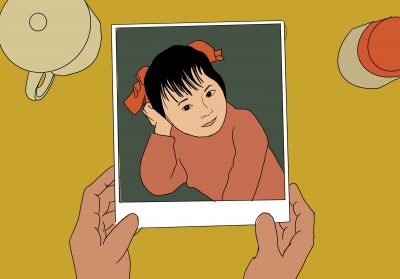Growing up as an only child was normal for me. Siblings were an odd concept. I never knew there was an option other than a family of three because when I was born — in 2002 — China was still in the shadow of the one-child policy, a government action to manage overpopulation.
“One Child Nation” is a documentary that follows the aftereffects of China’s one-child policy that limited a family to have only one child. The directors uncovered the pain carried by Chinese families after the policy ended in 2016.

At the Boston University College of Communication Cinémathèque — a series of film screenings that includes a conversation with the directors, “One Child Nation” told the story of a generation that had no choices.
Chinese families always hoped for more children, which is part of the traditional belief of a “flourishing family.” Yet, the reality was that strict family planning led to abortions, fines for having second children and fear. The directors interviewed families and relatives in China. One thing I noticed was the hopelessness, the emptiness in their eyes, the memory of a lost child.
Nanfu Wang, one of the directors and a producer of the film, narrates her own family trauma. Her brother was fortunate enough to be born under a fine instead of being aborted, but he was an exception.
To handle excessive births, the Chinese government relied on orphanages to strictly adhere to the one-child policy. In 1992, thousands of Chinese orphans were adopted by foreign families. Orphanages had to convince birth families that their illegal child would live a better life without them.
Every parent — adoptive or birth — was a victim.
The story continued with a girl named Shuangjie Zeng. Her twin was sent to an adoptive family in the United States, and she always hoped that one day her twin would come back. It’s possible that Zeng and her sister are identical twins, so she would endlessly imagine two sisters together, wearing the same clothes and having the same hair.
It’s pitiful that my generation can relate and empathize with Zeng. I went through a similar experience as her. I yearned for a sibling because I felt so alone. My classmates in school experienced the same thing, as did every Chinese child. At the same time, I was luckier than my peers for having five older cousins, three of which are siblings. Odd.
Only a few days ago, I learned about this obscurity from my mother. My aunt had aborted a child, lost one prematurely and lost her job during the ‘80s. It seems that my aunt eventually achieved that “flourishing family,” but at what cost? My aunt and uncle were forced to move on from their good jobs, start a small business from scratch and pay a huge fine to keep their children. Behind the happy ending were two unborn children.
During the Q&A portion of the event, Jialing Zhang, the co-director and co-producer, said she felt an urgency to make this documentary. People are forgetting that this happened. The emotion to make the film engulfed the risks of the Chinese government finding out.
Zhang said that I reminded her of where she came from as a student. In the history of the one-child policy, every citizen was a protagonist.
















































































































